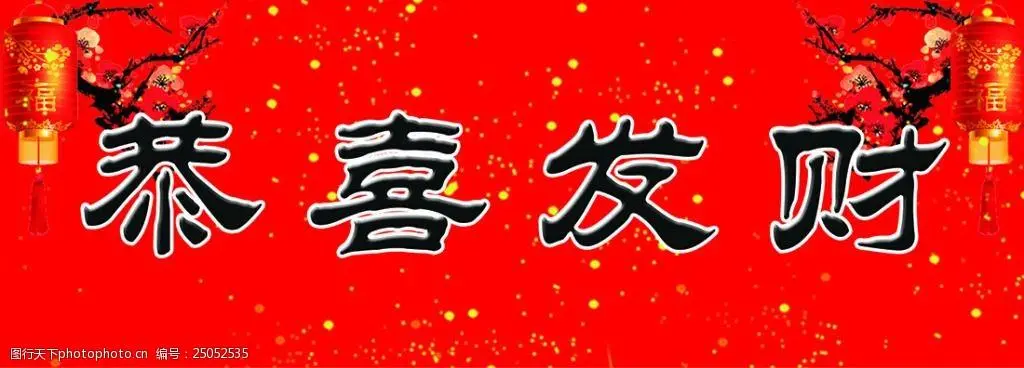黄仁宇大历史观解析:从技术角度审视中国历史的兴衰与逻辑
关于Huang Renyu先生的“大历史观点”,我看到有人总结了它,“它将历史视为一个整体系统,并从整体的角度研究了一个国家的起伏以及一个国家的兴衰。”与历史的传统不同,黄·雷尤(Huang Renyu)先生不同意使用道德概念来评论历史的优点和缺点,而是希望从广泛的角度研究历史发展的趋势,并找到原因和效果和逻辑。正如他用自己的话说:“从技术角度看历史并不是从道德角度看历史的评论。”
本文不是系统的阅读说明,也不是该书的摘要。我被用来在阅读时摘录一些有趣的内容,然后根据自己的理解将它们连接起来以形成笔记,这也可以被视为对书完成的解释。有时,为了连续性,我可能会摘录其他地方的内容来补充它或发展自己的内容。因为是休闲阅读,所以摘录受到主观性的影响很大,或者因为阅读场所不好,例如在拥挤的地铁汽车中,可能会省略大而重要的部分;或者因为心情不高,所以摘录可能会匆忙扫描,因此整篇文章只是一些自制的配菜,然后随机放在一起。
1。建立周王朝和政治制度
在谈论中国文明的历史时,它必须始于夏,周和周的王朝。文明的胚芽始于黄河盆地的农业土地。诞生中国文明的一块黄色土地位于黄河中间。土壤可以垂直堆叠,并且其中有许多细管。因此,地面中的水可以向上穿透而无需灌溉,并且土壤松动。在农业中,当它首次出现时,即使使用最原始的工具,也可以在该领域工作。在公元前1000多个,在这一地区出现了许多早期的农业部落。他们的系统组织者是周·贡丹(Zhou Gongdan),王国王的儿子,吴王的弟弟,他是周王朝的创始人。
夏和周之前。尽管他们也是世界上的汇编,但整个治理模式仍然是一个相当松散的部落联盟,尚未形成一个有效且稳定的治理体系。该系统是由周王朝创建的,它将继续影响中国历史的整个过程,例如封建制度,父权制系统和支持仪式和音乐系统。
周朝创建了中国的封建制度。它与中世纪欧洲的封建制度和上世纪的“幕府系统”有几个相似之处。原则上,王室并不直接招募整个人口,并且根据“公共食品致敬,官员食品镇和学者食品领域”的收入也间接支付,并且在各个层面受到控制。当然,土地不能买卖。如果土地改变所有者,它将基于世袭金字塔。例如,像“王子建立家人,官员有两个教派”这样的组织将完全崩溃。根据该系统,中央政府直接控制的领土距离一千英里,这被称为“国王的领土距离千英里之外”。此外,每五百英里广场是一个“服务”,总共有九项服务。由于王室与皇家资本的距离不同,因此每个服务器中的王子对中央政府有不同的义务。
公元前六世纪之后,该系统再也无法维护。由于人口激增,货币流通,主动的客人关系和战争动员,整个人口受到影响。卢和郑州开始“辜负他们的父母”和“做礼物”,这将超越过去的间接控制。这样,君主开始对整个人民征税。郑和金州还颁布了刑法,该法律放弃了礼节规则,并使用了对整个人民的普遍控制。
秦国家的“朝阳改革”实现了这种变化和趋势,该州完全破坏了周王朝的800年封建制度,并建立了一个新的文件管理时代,并集中了以皇帝和行政为中心的权力县和县的划分。这就是老师Qin Hui所说的“ QIN系统”,后来统治了中国的历史两千年,今天仍然感受到了它的影响力。
2。与北部游牧团体的冲突
农业地区和草原地区之间的碰撞已经贯穿整个中国历史,甚至成为推进历史过程的主要驱动力。 Qian Mu先生曾经分析过,代表农业的Hua人民与代表草原的Hu人之间的差异不是归因于血液,而是由于生活方式的差异。农业的生活方式是瓦西亚的生活方式,而游牧的生活方式是人民的生活方式。最初,位于中部平原的中国绝不是被东野,西隆,纳曼和贝迪所包围的。
在春季和秋季,各种农业国家的城市国家散落在各处,形状像奶酪一样。农业技术和农业人口激增的发展逐渐相连,直到秦国家统一了世界。中央平原的游牧民族退回到草原上,形成了著名的400毫米降水线。也就是说,降雨未达到400毫米的地区无法耕种,并成为游牧民族的放牧区域。这条线也已成为游牧和农业领域之间的分界线,并且始终遭受不断的冲突。
对于农业人民而言,这400毫米降水线是一个无法克服的限制,但是对于游牧民族而言,这条线不存在。一旦北部的干旱或极端天气会导致粮食短缺,游牧民族将大量向南移动,边境冲突成为中国帝国最紧迫的问题。
当秦吞并了各个王子以建立一个统一的国家时,零星的草原部落也表现出反应的趋势。强大的Xiongnu的突然崛起不能说与中国中部平原的统一没有任何联系。与各个附庸国分开战斗的游牧民族突然发现他们的敌人变成了庞然大物。当秦田带领成千上万的人建造长城时,该国立即意识到了自己的微不足道。
统一的匈奴人发挥了前所未有的战斗力。在公元前200年,汉朝的创始人刘·邦(Liu Bang)在贝山山(Baishan Mountain)被Xiongnu围困了7天,几乎在计划之前上演了Jingkang的羞辱。据说,Xiongnu今年动员了40万部队,这一规模在春季和秋季和交战状态时期难以想象。
在远古时代,汉人与游牧民族作斗争,这些游牧民族经常花费很多钱,超过了收益。在和平时期和战时,游牧民族都是骑兵。无需动员,所有人都是自然的士兵。当他们赢得胜利时,他们掠夺了很多,当他们迷路时,他们搬到了另一个地方而不会损失太多。 Yushi Chengjin说,与匈奴战斗“就像与阴影作战”。

另一方面,作为一个农业国家,汉族必须招募,动员和组织战争。每个部署都涉及巨大的成本。此外,工党转移导致浪费耕地和经济下降。成本是难以忍受的。那么,如果我们击败游牧民族怎么办?利润很少!
汉朝在这些不利的条件下正式发起了Xiongnu的征服,可以说它致力于整个国家的努力。公元前119年,汉朝皇帝为汉陆军带来了巨大的胜利,并感到非常自豪。由于取得了巨大的成就,他被后来的世代称赞为与秦皇的英雄。但是他付出的价格也对该国无法忍受,汉朝迅速下降。
“历史记录”记录:“(征服匈奴人)旅行了数千英里,以提供食物,花了十分钟的时间才能获得一块石头。”
在秦朝和汉朝,一个铃铛相当于6.4 shi。这句话意味着向前线的士兵发送1颗谷物,在途中会消耗64颗谷物。从这里开始,我们可以瞥见一场征服战争将带给帝国法院的财务压力。有记录说,要塞官员有140,000匹私人马匹,不算行李,少于30,000次进入了要塞。
到吴皇帝的统治结束时,“有几次军事革命,越来越多的人回购了这片土地,有五名伟大的官员和成千上万的人,越来越多的人被招募。”也就是说,许多普通百姓已经付出了豁免兵役的费用,当涉及到征兵方面,即使是低级军官和中士低于中士的人员也很难弥补这些数字。
与此相反,是东部汉朝的Ban Chao。他计划“在不花钱上花钱的情况下,将中国供他们提供部队。”他从中东堡垒出发的志愿者不超过一千人,后来支持他的人不超过800名士兵。但是他能够“使用野蛮人来控制野蛮人”。当他攻击沙奇时,他使用了25,000名士兵。公元94年,当他在西部地区八个国家袭击扬q时,他的部队甚至达到70,000。
3。汉朝衰落的转折点:巫术的灾难
Gu在传统中国人中写成“ GU”,在一艘船上有三个蠕虫,生动地代表了制造GU的方法。据民间传说说,萨满巫师将有毒的昆虫和蛇放在容器中,让它们互相吃并消除它们。剩下的最后一个怪物是Gu。这是一个由巫师操作的鸡肉游戏的“战斗大皇家”的有毒版本。
“ Shui Shu Geography”说:“方法是在5月5日收集一百种昆虫,从大昆虫到蛇,再到小虱子,再到虱子,将它们放在容器中,让它们互相吃饭,并保持彼此。其余的蛇被称为蛇,虱子被称为虱子,因为他们在胃中吃了五个内部器官,他们会杀死他们。 。”
毒药是为了伤害人,但是后来开发的巫术和有毒技术似乎与实际有毒的昆虫无关。巫婆使用被诅咒的护身符砍伐木制人物,并将其埋在地面上以谋杀对手。受害者常常病态。在远古时代,缺乏医学知识,伏都教昆虫认为许多疾病被认为是叮咬。因此,当萨满巫师用巫术使受害者生病时,他们被认为是使用伏都教昆虫的,因此被称为巫术艺术。
公元前91年,汉朝的皇帝生病了,有传言说,宫殿里有一辆巫术,涉及女王和刘齐亲王。 Shuihengdu的队长江庞负责调查,但目标直接指向王子。目前,吴皇帝在另一个宫殿里恢复了,即使是女王和王子也很难接近他。愤怒的王储抓住了江郑并处决了他。然后,张安声称王储是叛国罪。双方召集部队在首都战斗五天,“成千上万的人死亡”。最后,王储被击败并自杀,女王魏Zifu也自杀了。吴皇帝后来悔改并建立了“思想的子宫”,这也被用作“台湾返回思想的台湾”。
该事件被认为是汉朝衰落的转折点。王子自杀了,汉朝的继承计划出现了问题,法院和中央政府中的许多部长都牵涉到外国亲戚独裁统治和Huo Guang独裁统治的道路。
4。由太监,皇后和亲戚控制的政治局势
汉朝政治局势最突出的特征是太监,后宫和亲戚的影响很容易导致失去平衡。王·曼格(Wang Mang)在西汉王朝末尾篡夺权力和东部汉朝末期的宫廷混乱都表现出了这样的特征。这主要是由于秦朝统一世界后第二代的死亡。汉朝继承了一个早熟的政治制度,该制度未能形成一个可以有效控制各方力量的制度。没有办法划分中央和地方政府的权威。一切都在任何时候都受到现任和摄政王的摆布。这种自上而下的治理通常会使朝鲜和中国官员感到极为不安全,他们必须依靠那些有权力的人来庇护。
碰巧的是,赵皇帝,郑皇帝,艾美皇帝和皇帝都没有继承人。如果您想在王室成员中找到一个继任者,那么只有二十或三十个人,多达四十或五十名候选人,而候选人不会根据出生顺序选择。结果,通常会选择年轻一代夺取王位以控制帝国力量。整个过程突出了女主人公的重要性。因为根据汉朝的制度,女王在工作日没有真正的权力,被皇帝抛弃。然而,一旦皇帝去世,女王就被晋升为皇后皇后,收到了印章和丝带,并对继承人的选择产生了决定性的影响。这种安排使外国亲戚的地位突出。然后,外国亲戚与朝鲜和中国的部长相结合,他们正在寻求庇护形成强大的力量,并成为后宫的支持!
汉朝的吴皇帝看到了如此隐藏的危险,于是他去世前杀死了王储的母亲“古伊夫人”。但是,这是一种个人无助的行为,无法成为系统。取而代之的是,他被后来的几代人批评,后者指责他残酷和不道德。

东汉朝没有做出任何改变。原始阶级继承了西汉王朝的系统,权力失衡仍在继续。在东部汉朝的13位皇帝中,只有刘十一,广皇帝和明皇帝的刘Zhuang是成年人。其他人要么以薄弱的头衔登上宝座,要么被招募为婴儿来弥补这个数字。除了西安皇帝(皇帝)的最后一个禅宗是五十四岁的Cao Pi,其他人都没有40岁。惠恩皇帝去世后三十六岁,林皇帝是三十四岁,这被认为是长寿。皇帝皇帝,肖皇帝,钟皇帝和Zhi皇帝没有机会庆祝他们的第十个生日。由此,可以想象卢阳的政治局势会是什么样。
5。王曼的新交易
王·曼(Wang Mang)的外表是一集。汉朝建立后的两百年后,行政税收的小农民的经济基础逐渐发生了定性变化。这是无法做到的。 Taiping World的发展逻辑将不可避免地导致财富的集中和富裕家庭的兴起,但法院没有办法处理这一问题。到西汉王朝结束时,自从汉朝开始以来,税收制度已经取得了平等的税收制度,不再值得其名字。 “有钱人入侵,分裂的田野和抢劫假期。”土地的集中度导致税收减少并清空国家财政部。税收和劳动力的增加导致难民激增。 “有钱人入侵,分裂的领域和抢劫假期”加剧了社会冲突。 ,甚至引起社会不稳定。
是王·曼(Wang Mang)进行了重组以解决这个问题。王·曼格(Wang Mang)的权力篡夺可以被视为将其亲戚的力量扩展到其顶峰。他不满意让皇帝命令王子,而是想自己负责一切。王曼可以被视为理想主义者。他的新交易称为“整个古代重组”,该协议旨在根据儒家理想完全改变整个国家体系。
尽管他的新政策涉及许多事情,但其要点并不难列。
一种是称呼世界国王土地的土地,这意味着该土地是国有的。每个家庭对所占据的地区和可以使用的奴隶数量都有限制,并且不允许自己购买或出售;
第二个是“五个余额”和“六个关岛”,也就是说,当政府开展业务时,它还使用黄金,银,布,大硬币和五件泰铢硬币,以创建一个货币体系,以创建一个货币系统彼此可以互换。一种是农业政策,另一个是商业政策,它也符合所谓的“食品”的传统类别。
理想是,农民都有田地,货物散发,价格公平,高利贷消失了。这个理想涉及国家和社会的基础,并具有雄心勃勃的目标。但是,当王·曼(Wang Mang)重组政府时,新法院遇到了财务困难,部长们只能在每月的薪水下得到一块丝绸。 “税收计划是不合理的,官员们最终不会支付。”目前,认为可以在单个文件中颁布所需的改革,这太乐观了,世界将很乐意遵循。
6。汉朝的复兴
在西汉王朝和东部汉朝的转弯时,值得注意的是两件事:首先,政府的监管力量减少了,人民中私人绅士姓氏的兴起。第二个是官僚机构的扩张。据估计,有超过130,000名中央官员和地方官员。
东部汉朝的创始人刘xiu皇帝是刘·邦(Liu Bang)的第九个孙子。他的第六代祖先是长沙的国王丁,是西汉王朝的十四个儿子之一,被加冕为国王。但是他在这个部门似乎并不是很好。从侯爵到县长和县治安法官,他一直倒下,他已经成为平民。
在王曼(Wang Mang)的时代,刘十四(Liu Xiu)也前往昂安(Changan)学习成为官员并成为总理的崇高理想。尽管他不是来自一个贫穷的家庭,但他的钱很少。他曾经与同学筹集资金来购买驴,并让他的仆人担任快递员来赚钱以补充自己的钱;他还代表叔叔参加了诉讼。在饥荒时期,他甚至背叛了他从谷物中赚钱,而且很精明。他擅长计算,应根据社会阶层属于绅士和商人的下层阶级。他怎么以为有一天他能够穿黄色的长袍?
因此,当他转变成九五个领主时,他必须紧急解决合法性问题。
刘十一是汉朝皇帝的后代。他将该国的首都指定为Luoyang,并重建了祖先的寺庙。已故的皇帝只崇拜它,直到汉朝皇帝皇帝为止。因为据一代人称,汉朝的皇帝是刘Xi的父亲,汉朝的皇帝是他的平等,汉朝的皇帝是他的侄子,而汉朝的皇帝是他的祖母。因此,汉元皇帝之后,西汉王朝的君主失去了在祖先庙宇中接受牺牲的资格。他还以她不遵守高祖的意志而在原始的Taimiao神庙中删除了Lu Empress Lu的精神宝石。这样,他从父亲和母亲的界限中成为了汉朝的合法继承人。
尽管西汉王朝的首都是张曼(Changan),它与地球运输相关,一切都是黄色的,而东汉王朝的首都是Luoyang,与火的运输有关,装饰大多是红色的,它们本质上是同一王朝。东部朝代对上一代人的入侵过多,只能继续以小农民为基础的原始帝国,但不能为中国造成新的局势。
因此,刘十一在历史上被称为“中兴领主”。
7。党控制的灾难
东部汉朝的学者促进非常有效。位于卢阳的帝国学院有240间客房和1,850间客房。到Huan皇帝时代,帝国学生的人数已达到30,000。那些私下教学的人经常聚集数百或超过一千多个门徒。但是,所讲的主题非常狭窄,通常不专注于人文科学,而是专注于传统的政治思想。在“卓越学习导致官员”的条件下,这些学者缺乏发展自己的野心的手段,而不是成为官员。
有时学习确实是促进和财富的阶梯。如果您做得很好,几代部长将建立一个家庭。只是这种机会很少见,有些是官方职业,有些是“客人”,许多人傲慢自大。在阅读贤哲书时,他们养成了自杀公义的习惯。它们不仅被狭窄的道德概念所困。统治,但也迫使他人用个人道德替代社会秩序。这些条件中有许多构成了该党灾难的根源。
无法发展民法也是汉朝的严重弱点。在《韩法》继承了秦法之后,规定很复杂,内容很简单。特别是,中产阶级在农村社会中积累的资本从未得到适当处理,小农民害怕失去土地并无家可归,因此他们将“合并”视为可怕的道路。
许多人通常借钱在乡村购买土地,通常是作为客人。如果当地官员干预,他们会发现这些人背后的老板都是法庭上的贵宾。最权威的人是张朗(Zhang Rang),首席太监。 “后来的汉朝书”中有一个关于太监的传奇:“当客人要求许可时,有数十万马车。”
李·杨(Li Ying)到达伦芬(Renfang)后的第十天,他逮捕了张家庭进行手术。张朗(Zhang Rang)的弟弟张尚(Zhang Shuo)也是王旺县(Yewang County)的地方法官,被指控“腐败和残酷”。李的亲自带领他的军官和士兵俘虏了他的家。一旦他受到讯问,他就立即被处决。惠恩皇帝还指责他无需要求执行他。李的辩护不是基于法律,而是完全基于经典和历史。他还强调,孔子在担任卢的军事指挥官的七天内执行了Shaozhengqing,并且他一直担任军事司令十天。采取行动真的为时已晚。他摆脱了这一论点,将来有很多起伏。最终,当林皇帝与太监和名人战斗时,他被监禁并酷刑致死。他的一千多个门徒也被监禁。这发生在公元169年。
对该党监禁造成的灾难的评估始终倾向于偏爱学者阶级,而《太监》被口头批评,并将其写成是东部汉朝陷入困境时期的罪魁祸首。但是,事实通常不是那么清晰,黑白。
“后来的汉朝书:丹奇的传记”还提到,许多名人杀死了太监和客人团体,甚至包括母亲在内的那些被赦免的人,一次被屠杀了数百人。当时的人们还说,“纪律和纪律被废除了”,但我们只能强调这是社会进化的结果,但法律制度无法相应地调整,我们必须以道德替代法律。
卢·索尼亚(Lu Simian)先生还简要评论了该党的监禁造成的灾难:目前,学者 - 著名和贵族都是众所周知的,很容易与之交朋友。当时,大多数太监都有儿童和亲戚,他们要么在国外担任专职官员,要么住在乡村,并依靠自己的力量自大。利用法律制裁或对他激发公众舆论是为自己取名的好机会。然后,学者 - 培训和太监随后变成了火和水。首都的大学恰好是这组学者奖学金的聚会中心,他们擅长声誉,易于与之交朋友。为了阴谋,吸引类似的人并混淆对与错是一个禁忌。当时的学者 - 酿酒师天生对此是可疑的。此外,通过使用这种犯罪,他们都可能被一口气抓住。这是多么方便和愉悦!太监然后指责那个当时反对他们的名人成为党员,并说服霍恩皇帝囚禁他们。
8。强大的家庭的崛起
东部汉代崩溃的最大原因之一是土地吞并和随后的强大家庭的崛起。
汉朝和秦朝的法律有复杂的规定,但内容简单。自从杨时代以来,秦朝将“弱者”作为其政策的核心,并促进了小型家庭制度,以防止任何抵抗帝国权力的氏族的出现。因此,整个系统基于小农民,官僚主义的规则简单且相似。同一模型在全国范围内被复制和推广。
但是,一旦社会发展并积累了社会资本,法院就会亏损。汉朝经历了长时间的统一与和平。没有外部干扰,社会财富的积累将不可避免地导致土地吞并。但是,由于一个行业的吞并,失去土地的农民将成为富裕家庭的“奴隶”或“客人”,即使不是难民。这就是后来的Wei,Jin,Southern和Northern王朝的贵族家庭来的,但地方官员无法与此类富裕的家庭打交道。
土地吞并的最大问题首先是帝国政府财政的耗尽,其次是大量“难民”的产生。如果发生饥荒,帝国法院完全无法提供救济,在各个地方频繁骚乱。东部汉代晚期的“黄色头巾起义”在这种背景下爆发了。
9。WuHuan Hua

中国的五个战车通常被视为中国文明的灾难,不少于日耳曼人民对西罗马帝国的俘虏,西罗马帝国陷入了持续了数千年的黑暗中世纪。但是开始似乎相似,但是结局是完全不同的。在国王王朝爆发了八个国王叛乱之后,五个野蛮人继续向南移动,并在中国中部造成了严重的混乱。这持续了一百多年,被称为历史上五个野蛮人的16个王国。在此期间,政治权力的变化令人眼花di乱,大小的事件很难跟随和混乱,使人们在绵羊和一团糟中给人留下了印象。
但是这种混乱并没有像西方世界那样将中国文明纳入一个黑暗时代。相反,武的影响破坏了秦和汉朝的限制性社会结构,并为唐和宋朝奠定了基础,这是中国文明最光荣的时期。
原因是武河(Wuhu)向南行驶不摧毁中国文明,而是竭尽所能融入这个文明。
“五人”通常是指Xiongnu,Xianbei,Jie,Qiang和di的五个主要部落。许多人顽固地认为他们是野蛮人,他们喝了头发和鲜血,但历史书中的记录并非如此。
例如,建立了汉和Zhao王朝的匈奴人的领导人刘Yuan渴望学习他年轻的时候。香舒(Wan Chunqiu Zuo)的传记,以及太阳王的战争艺术。
Liu Yao, the last emperor of the Han and Zhao Dynasties, was "good at literature and craftsmanship", and he also established Taixue and primary schools, "selecting virtuous scholars, Confucian scholars, Ming classics and practical learning to teach them". Think about it, this is a country founded by the Huns.
The founding emperor of the Later Zhao Dynasty, Shi Shi of the Jie clan, ordered his staff to "protect the Hu people from entering the country, respect the forbidden laws, and not insult the Chinese people in their clothes." His nephew, the cruel Shi Hu, "admired the study of classics very much and sent Dr. Guozi to Luoyang to write the stone classics."
The former Qin emperor Fu Jian of the Di tribe built a Mingtang, where he "cultivated the fields personally, and his wife, the Gou family, planted silkworms in the suburbs."
How does this look like a barbarian monarch! Even when they discussed the national economy and people's livelihood, they used classics and epic books as footnotes. Even if they were all decorated by civil servants, it could not be regarded as "chaos of China". Instead, it showed that they wanted to use traditional methods to clean up the mess.
It is a pity that they failed to succeed, and all their efforts had to wait until the Sui and Tang Dynasties to shine.
10. Comprehensive Sinicization by Emperor Xiaowen of the Northern Wei Dynasty
The comprehensive sinicization policy of Emperor Xiaowen Yuanhong of the Northern Wei Dynasty was a very peculiar move and quite idealistic.
Yuanhong's original name was Tuoba Hong. He was born in 467 and ascended the throne at the age of 4. His biological mother and grandmother both "died as usual" according to the method of Emperor Wu of the Han Dynasty of "raising his son and killing his mother". Therefore, he was raised by the "Empress Dowager Wencheng Wenming". She is Han Chinese and her family lineage can be traced back to the Feng family of Beiyan. Empress Dowager Feng took charge of the government twenty years before Tuoba Hong ascended the throne, which profoundly affected the formation of Tuoba Hong's personality and thoughts, turning him into a completely Han Chinese. When hearing the name Queen Mother, what comes to mind is an old lady with a majestic face. However, in fact, Queen Mother Feng was not yet 30 years old when she entered the court, and was still a little girl by modern standards.
In 493 AD, Emperor Xiaowen, who was pro-government, decided to move the capital to Luoyang. The next year, he issued an imperial edict and implemented the Sinicization policy. As the capital of the Eastern Han Dynasty, Luoyang has always been the core of Chinese civilization. Emperor Xiaowen's move of the capital declared his determination to completely Sinicize Xianbei.
He forbade the Xianbei people to wear Hu clothing and speak Xianbei language. If any official spoke Xianbei language in the court, he would be dismissed immediately. This forms an interesting echo with King Zhao Wuling's "Hufu riding and shooting" hundreds of years ago.
He changed his surname Tuoba to Yuan, and also changed other Xianbei surnames such as Murong and Yuchi to single-syllable Han surnames. In the name of "marriage with the same surname", he even arranged for his six imperial brothers to marry Han people in the court with official positions, and their spouses were also appointed by the emperor. For example, "The second brother Shiping Wang Xie, Ke Pingting Wei Qing Longxi Li Chong's daughter; Ji's brother Beihai Wang Xiang, Ke Ping's official doctor Zheng Yi's daughter in Xingyang."
What about the wives these royal brothers had married before? It's such a pity that these princesses are all reduced to concubines.
Emperor Xiaowen's reforms were actually a tragedy. In his efforts to integrate farming and grasslands, he went to the other extreme, leading to the loss of control of the northern grasslands. You must know that the military power Xianbei relies on to enter China is exactly there.
11. The unification of the Five Hus and Sixteen Kingdoms
After the fall of the Han Dynasty in 369 years, China could not be unified. At that time, the population was always moving from north to south, from west to east. The majority of the Han people could not compete with this force presided over by nature. Although the ethnic minorities in the north were good at cavalry tactics, they were unable to cross the swampy areas such as the Huaihe River and the Han River. And the nomadic lifestyle cannot be used as a model for unifying China. The large empires of the Qin and Han type used bureaucracies to rule over a large number of small peasants. However, during the split, the great families of the Han people and the chieftains of the Yi Di all started their own affairs, hampering the government's power to recruit troops and collect taxes from the entire people. Coupled with the different languages of various ethnic groups, it also creates obstacles to unification.
In 396 AD, Pingcheng (Datong, Shanxi) was made the capital of the country. The Tuoba clan of Xianbei took the attitude of a conqueror and "immigrated the people of the six states of Shandong and the miscellaneous barbarians of Korea and Korea with more than 360,000 workers and more than 100,000 people to consolidate the capital." "Some books are also signed 36." If a large number of people are divided into departments, there will be signs of serfdom in the country. Such conquests and transformations did not end until the early fifth century.
It was not until 424 that Tuoba Tao was proclaimed emperor. Not long after he took the throne, he promulgated more than a thousand Chinese characters. He also said that in the past, seal script, official script and cursive script were used in parallel, so there was no standard. What he promulgated this time will be "forever" Kai Qiu". It can be seen that the new imperial court not only paid attention to cultural relics, but also began to use multi-ethnic languages as a unifying tool.
Tuoba Tao unified North China and ended the situation of the Five Hus and Sixteen Kingdoms. In the Han majority areas, it is always difficult to be effectively controlled by the absolute imperial power because of the troubles of the family. In 428 AD, Tuoba Tao "replaced the people who obeyed the orders and practiced illegal practices with selected loyal ones", which seemed to have completely solved this problem.
Four years later, "Lu Xuan of Fanyang, Cui Chuo of Boling, Li Ling of Zhaojun, Xingying of Hejian, Gao Yun of Bohai, Youya of Guangping, Zhang Wei of Taiyuan, etc. are all virtuous and handsome men, crowned the state", and were named for recruitment. 。 Named Mu Cai, he actually forced hundreds of people to work as errands and hostages in Pingcheng without pay.
In 450, the Cui Hao incident broke out again. Situ Cuihao, who wrote the "National Records", was too literal and straight, and had inappropriate descriptions of the Xianbei people and the royal family. He also published the text on a stone tablet on a suburban altar. The emperor was furious and exterminated Cui Hao's clan, which also affected Cui's in-laws, including the Lu family of Fanyang, the Guo family of Taiyuan, and the Liu family of Hedong, who were also "Yiqi tribe". Tuoba Tao still did not understand his hatred and killed thousands more people. This was undoubtedly a major blow to the wealthy Han family in North China. One of the secrets of this is that the emperor controls tens of millions of soldiers and civilians and does not allow other civil institutions to interfere. The aristocratic Chinese are no different from the barbarian chieftains.
However, the game between the wealthy families and the imperial power was far from over. It continued in the prosperous age of the Tang Dynasty, until the Song Dynasty's imperial examination system was fully rolled out and the scholar-bureaucrat class rose.
12. The First and Second Empires
From the perspective of "big history", the Sui, Tang, and Song Dynasties can be called China's "Second Empire" to distinguish them from the "First Empire" of Qin and Han Dynasties. Although the Han Dynasty was said to be centralized, its county organization was still reorganized from the feudal system of the Zhou Dynasty. The original institutions inherited by the Sui and Tang Dynasties can be traced back to the Tuoba clan of the Northern Wei Dynasty from the Northern Qi and Northern Zhou Dynasties. They began with the sinicization of the nomadic people. Through the "three-head system" and equalization of land, it can be said that the entire society was artificially incubated under state decrees. Small farmers are the main body, focusing on the level of low-level institutions.
The "three-chief system" mentioned here is one of the most important systems introduced during Tuobahong's reform, that is, five families establish one neighbor chief, five neighbors establish one mile chief, and five miles establish one party chief. Its duties are to check household registration, supervise farming, collect rent transfers, collect corvee and military service. The "Three Chiefs System" combined with the land equalization system (a system of allocating land according to population, part of the land will be owned by them after a certain number of years of farming, and part of the land will be returned to the government after their death), will help dependent farmers get rid of the control of powerful families and transform into national Household registration and the establishment of a management system based on small farmers ensured the source of taxes and servitude, thereby strengthening the authoritarian centralization system. This became the most important institutional foundation of the "Second Empire".
Documents of the Qin and Han Dynasties generally used bamboo and wood, but by the Sui and Tang Dynasties, not only paper had been used for more than 500 years, but woodblock printing also appeared around 600 AD. These factors made education more common than before, and also enabled the entire civil service group to align itself with the society of small farmers, so that each other could maintain the same level of simplicity.
Although the turbulent times from the Qin and Han Dynasties to the Sui and Tang Dynasties caused misfortune to all the people, looking at it from a more macro historical perspective, it undoubtedly provided a multi-layered political, ideological, cultural and other foundation for China's second renaissance. It can be said that Wuhu Luanhua is a fault, and it is also a Phoenix Nirvana.




